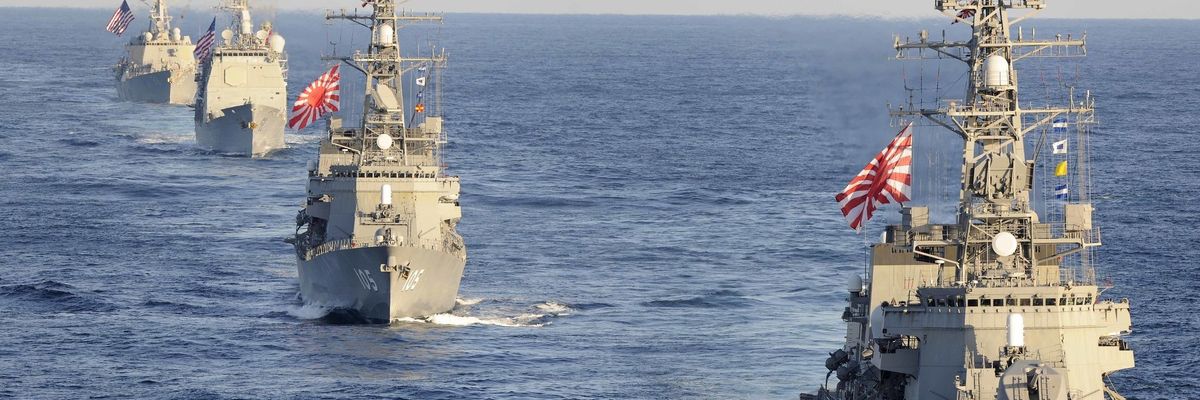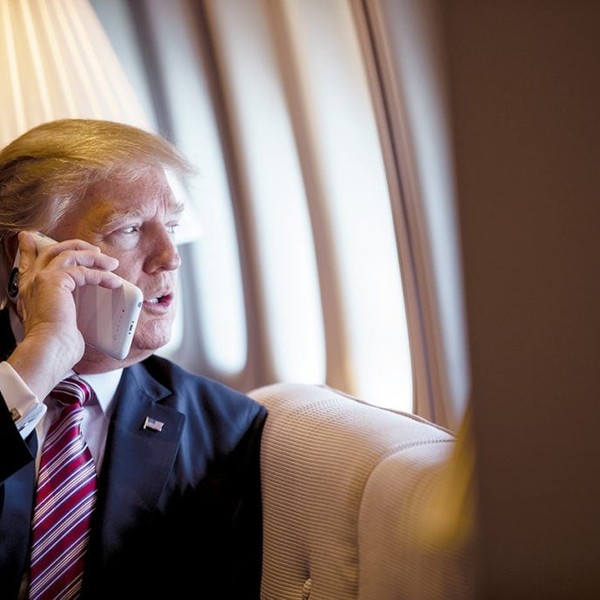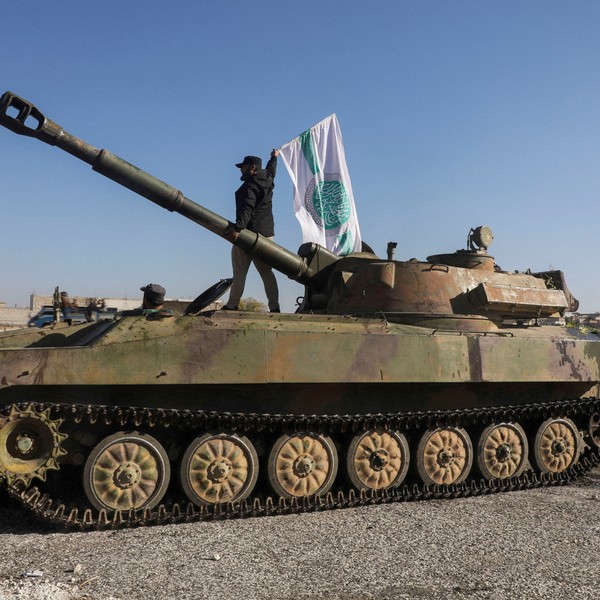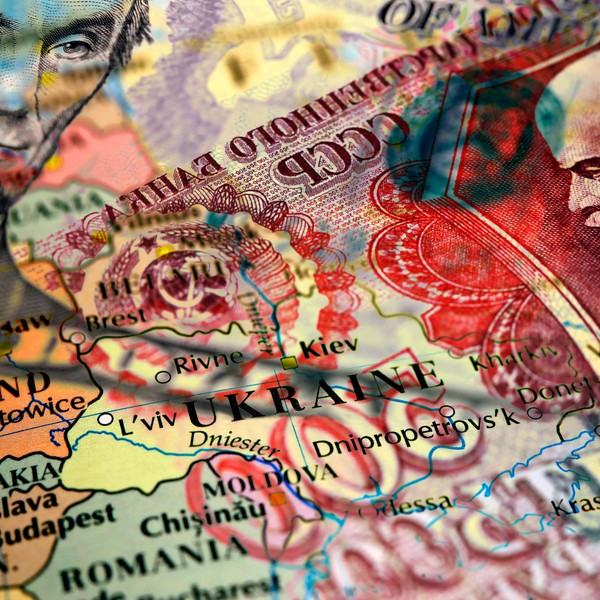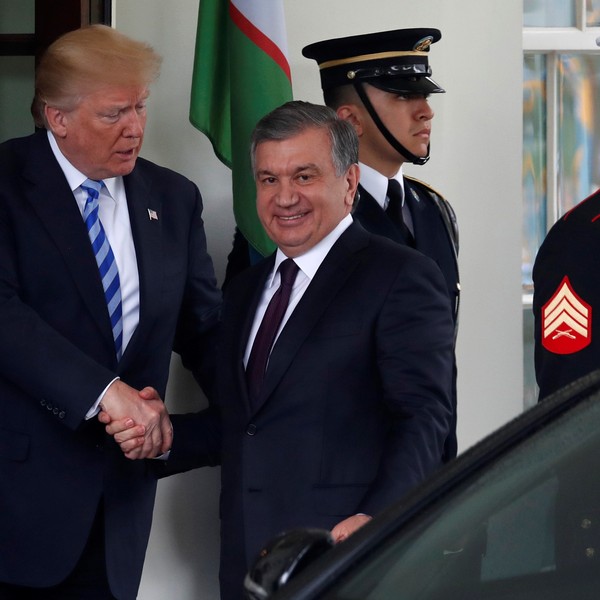More than a year has passed since the war in Ukraine broke out, with more and more voices arguing that “Taiwan is next.”
President Joe Biden has repeatedly said that the United States would defend Taiwan in the event of a Chinese attack. If Biden’s word is taken at face value, Japan will have to make a critical decision in case conflict actually breaks out. Japan’s position would strongly influence the outcome of such a war, especially regarding whether or not the United States can use bases in Japan.
It is naïve, however, to expect Japan to automatically fight China if the United States intervened militarily.
Two Choices for Japan
Despite hawkish public comments by some of its politicians and officials, Japan has neither the ability nor the will to defend Taiwan by itself. The problem for Tokyo arises when the United States decides to go to war with China in the event of a Taiwan conflict.
Simply put, Japan has two options. One is to fight China along with the United States. The other is to choose neutrality. Logically speaking, there could be a third option which we can call the Ukrainian model. Instead of directly fighting China, Japan and the United States could supply Taiwan with military support, while rallying Western nations to impose various sanctions on China. But Taiwan is an island country that is only about 1/16 the size of Ukraine. It is unlikely that China will acquiesce to our delivery of weapons and ammunition into Taiwan by air or sea when the entire island becomes a war zone.
Ultimately, this option is no different than fighting China.
War with China: Japan Could Help Defend Taiwan, but with Heavy Sacrifice
By fighting alongside the U.S., Japan could play a significant role. The participation of the Self-Defense Forces would surely help. But the most important contribution would be to permit U.S. forces to operate not only from U.S. bases in Japan, but also from SDF bases and other infrastructure, such as civilian ports and airfields. And that would comprise a formidable threat to the Chinese military.
Recent war games conducted by the Washington-based Center for Strategic and International Studies (CSIS) suggests that the United States would lose a conflict over Taiwan if it were unable to access bases in Japan.
On the other hand, going to war with China would entail huge costs. It would be almost impossible for Beijing to force Taipei to capitulate if Japan allowed the U.S. Air Force to fly sorties from Japan. The Chinese military would have no choice but to attack U.S. bases and other military infrastructure in Japan to degrade the capability of the U.S. forces.
The CSIS war game concluded that such a scenario would result in devastating damage to all parties, including the SDF. But the damage to Japan would likely include civilian sectors as well. Although China’s ability to attack the U.S. mainland with conventional weapons is limited, it has sufficient power projection, consisting mainly of its missile arsenal, to strike nearby Japan. Japanese civilian casualties would be far greater than those suffered by the United States.
And since Japan would inevitably become part of the battle theater, its economy would suffer as well. The longer such a war goes on, and the more it escalates, the greater the destruction inflicted on Japan will be.
In the Ukraine war, two nuclear powers, the United States and Russia, have so far avoided direct conflict as the battlefield has largely been confined to Ukraine itself. That is because the United States does not want to risk nuclear war. But a war over Taiwan would pit two nuclear powers directly against each other. If U.S. military bases in Guam or Japan are hit by China, or if the war tilts strongly against Taiwan, the chances that the U.S. would attack mainland China cannot be dismissed.
And if the situation escalates further, the use of nuclear weapons can also not be ruled out. In war games conducted by the Center for a New American Security (CNAS) last summer, players on a Chinese team ordered a nuclear attack over Hawaii. Although the game ended at that point, Japan could itself become a nuclear target. We might even see a nuclear exchange between the United States and China.
Neutrality: Japan Intact, but Loses Taiwan and Alliance
The pros and cons for Japan will be basically reversed if Japan takes a neutral stance and refuses to allow the United States to use its bases on its territory. Under those circumstances, Beijing would have no reason to attack Japan. Indeed, any attack on Japan would almost certainly draw Tokyo into the conflict on the U.S. side. The damage to Japan both for the SDF and civilians would be negligible. This is obviously the biggest advantage of choosing neutrality.
Unable to use bases in Japan, however, the United States and Taiwan would suffer badly in war with China. Washington would be forced to think twice about any military intervention at all.
Either way, a neutral Japanese stance would greatly increase the chances of China taking over Taiwan and establishing rule by the Chinese Communist Party. In such a scenario, the Japan-U.S. alliance would deteriorate considerably, and possibly include the abrogation of their Security Treaty. And, after the war, Japan may have to deal with an aggressive China without its close ties to the United States.
There Is No Right Answer
To be sure, it is important to protect Taiwan's democracy, but that is not all. If protecting another democracy were an absolute criterion for making foreign policy decisions, the United States and its allies would be fighting Russia directly on behalf of Ukraine by now. But NATO countries, including the United States, have clearly weighed the risks of such a scenario, including nuclear Armageddon, and limited their assistance accordingly. That is the correct approach.
In his January 13 speech at the School for Advanced International Studies in Washington Prime Minister Fumio Kishida reflected on Russia’s aggression against Ukraine and said, “It is Japan that must rise to this challenge to take action to defend our freedom and democracy.” When discussing China, he vowed to “never allow any attempts to unilaterally change the status quo by force.”
But Japanese leaders will have to carefully weigh the costs and benefits of each option if a conflict over Taiwan becomes a reality. The United States should not take it for granted that Japan will simply go along with Washington’s desires or expectations.
That said, choosing neutrality is also not an obvious answer. Japan will sacrifice a great deal to protect its own security and territorial integrity. Moreover, if Japan were to assume a neutral stance, China might be encouraged to use military force to realize its aim to bring Taiwan under its control.
Indeed, Japan’s response to a military conflict over Taiwan will ultimately depend on what provoked Beijing’s use of force. For example, if Taipei unilaterally declared independence, it is hard to imagine that Japan would be willing to risk the devastating consequences of a war to defend Taiwan.
On the other hand, if Beijing resorts to violence in order to unify Taiwan unilaterally, the “Japan is next” argument will become much more persuasive. In any case, Japan should make a final decision only when a war becomes truly inevitable.
Aren’t We Inviting War in East Asia?
Whether joining a war or taking a neutral position, the choice between the two will be a choice between two evils. If forced to choose either, Japan, as well as the United States, will face enormous risks and heavy costs.
Ultimately, Japan's top priority must be to prevent a war. Both Japan and the United States, together with Taiwan, are trying hard to enhance military deterrence to that end. At the same time, Washington appears to be using Taiwan as a key touchstone — and a very combustible one at that — of its strategic competition with Beijing. Japan also has been vocal in criticizing China and expressing support for Taiwan. This is akin to increasing fire insurance coverage while pouring gasoline around.
No matter how hard Japan, the United States, and Taiwan improve their deterrence capabilities, China will not be deterred if Beijing perceives that Taipei is moving decisively toward independence and that Washington and Tokyo are supporting that movement.
The Chinese leadership fears that the legitimacy of the Communist Party's rule of China will be lost if it tolerates Taiwan independence; a state of mind which offers little room for the logic of deterrence to function. History is full of examples of the failure of deterrence. The leadership of Imperial Japan decided to attack Pearl Harbor in an attempt to maintain its power in East Asia even though it did not believe the Japanese Army could win a war against the United States.
Putin's decision to invade Ukraine was at least partly due to his obsession with the fear that Russia’s survival was critically threatened by NATO's eastward expansion.
In order to prevent a war over Taiwan, it is essential for the United States and Japan to not only pursue adequate deterrence, but also to provide reasonable assurances to China that they reject the notion of Taiwan’s independence. Otherwise, the reckless rhetoric of “Taiwan will be the next Ukraine” may well become a self-fulfilling prophecy. And Japan will be forced to confront terrible decisions.
